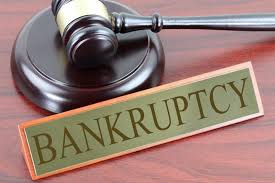
The full economic brunt of the novel coronavirus pandemic and a related recession has been offset partially and at least temporarily by a flood of government support programs in the United States resulting the number of bankruptcy filings for 2020 in the country reached their lowest level since 1986, said a report from Epiq AACER.
Despite the overall record low numbers, still there was a 29 per cent jump in the Chapter 11 filings used to reorganize larger businesses in 2020 in the country at 7,128 compared to 5,158 in 2019, according to the firm's compilation of bankruptcy cases. The number of Chapter 11 filings included those from major retailers such as J.C. Penney and was because of the biggest economic downturn in a century in the American economy.
However, the overall bankruptcy filings, which included all personal and other business bankruptcies, during the entire 2020 was at 529,068 and in comparison the overall number was almost 80,000 every year in recent years and was triple of 2020 numbers in 2010 at the end of the 2007-08 global financial meltdown.
The Covid-19 pandemic has so far seen millions of jobs destroyed, unemployment insurance in the US being collected by record numbers of Americans and the forced closure of small businesses in order to prevent the fast spread of the pandemic in the country and this record low level of bankruptcies has been one of the more perplexing dynamics of the US economy in the pandemic era.
A large part of the loss in business income was replaced by unemployment insurance, business loans and other programs launched by the US government during the pandemic which helped to push savings to record levels and helping in keeping afloat households and businesses – at least for the time being.
A full reckoning down the road may be pushed by a further $900 billion in aid for business that has recently been approved by US Congress.
But with the ending of the government programs and debts from the last few months coming due, he expects household and other non-commercial filings "to grow substantially in the second half of 2021," said Epiq AACER Senior Vice President Chris Kruse in a press release.
For example, the report noted that many of the Americans and households paid down their debt by putting to use the increased unemployment benefits or government stimulus while others were wracking up obligation by postponing rent and mortgage payments.
(Source:www.usnews.com)
Despite the overall record low numbers, still there was a 29 per cent jump in the Chapter 11 filings used to reorganize larger businesses in 2020 in the country at 7,128 compared to 5,158 in 2019, according to the firm's compilation of bankruptcy cases. The number of Chapter 11 filings included those from major retailers such as J.C. Penney and was because of the biggest economic downturn in a century in the American economy.
However, the overall bankruptcy filings, which included all personal and other business bankruptcies, during the entire 2020 was at 529,068 and in comparison the overall number was almost 80,000 every year in recent years and was triple of 2020 numbers in 2010 at the end of the 2007-08 global financial meltdown.
The Covid-19 pandemic has so far seen millions of jobs destroyed, unemployment insurance in the US being collected by record numbers of Americans and the forced closure of small businesses in order to prevent the fast spread of the pandemic in the country and this record low level of bankruptcies has been one of the more perplexing dynamics of the US economy in the pandemic era.
A large part of the loss in business income was replaced by unemployment insurance, business loans and other programs launched by the US government during the pandemic which helped to push savings to record levels and helping in keeping afloat households and businesses – at least for the time being.
A full reckoning down the road may be pushed by a further $900 billion in aid for business that has recently been approved by US Congress.
But with the ending of the government programs and debts from the last few months coming due, he expects household and other non-commercial filings "to grow substantially in the second half of 2021," said Epiq AACER Senior Vice President Chris Kruse in a press release.
For example, the report noted that many of the Americans and households paid down their debt by putting to use the increased unemployment benefits or government stimulus while others were wracking up obligation by postponing rent and mortgage payments.
(Source:www.usnews.com)





